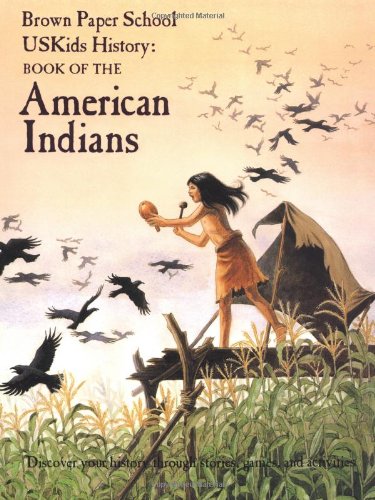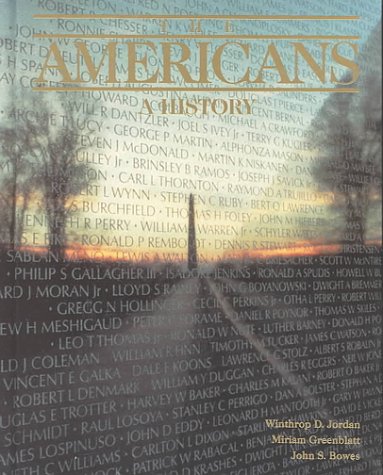-
The History of the American Indians
James Adair
Paperback (CreateSpace Independent Publishing Platform, Feb. 15, 2017)James Adair's superb accounts of the Native Americans are derived from his personal experiences meeting and interacting with the various tribes during the 18th century colonial era. James Adair was a passionate chronicler, explorer and trader who ventured through North America in an effort to discover new lands and exchange goods with the native peoples. He spent decades traversing what is now the Deep South of the United States, and was among the first white men to discover certain tribes, distinguishing between their behaviors and customs with a depth no historian had managed. Although an amateur scholar, Adair meticulously recorded his observations. As a result, this book contains both mundane and profound facts - the sum combining to form an evocative picture of peoples now lost to time. The joys of community and traditions such as dancing and ceremonies are tempered by the inter-tribal conflicts, murder and blood feuds, incipient alcoholism and increasing threat of European settlers. Close to half of this book is dedicated to the notion that the Native American tribes are descended from the 'lost tribes of Israel'. Now discredited after anthropologists determined the original migration routes, it is thought Adair inserted these analyses in part to cater for popular demand at the time. From the mid-17th to the early-19th century, the notion that the Native Americans were directly descended from the Israelites of ancient times was a popular phenomena. Many scholars postulate that the Book of Mormon was partly inspired by Adair's history. The rest of Adair's work however contains insights that can never be rediscovered or elaborated upon. The wars and gradual conquest of the Native American tribes by white settlers left precious little of their culture available for scrutiny by subsequent generations of historian. As such, this book remains one of the most valuable and cited primary sources on the subject.
-
The History of the American Indians
James Adair, Kathryn H. Braund, Kathryn E. Holland Braund
eBook (University Alabama Press, April 18, 2011)A fully annotated edition of a classic work detailing the cultures of five southeastern American Indian tribes during the Contact Period.James Adair was an Englishman who lived and traded among the southeastern Indians for more than 30 years, from 1735 to 1768. During that time he covered the territory from the Appalachian Mountains to the Mississippi River. He encountered and lived among Indians, advised governors, spent time with settlers, and worked tirelessly for the expansion of British interests against the French and the Spanish. Adair's acceptance by the Creeks, Choctaws, Cherokees, and Chickasaws provided him the opportunity to record, compare, and analyze their cultures and traditions.Adair's written work, first published in England in 1775, is considered one of the finest histories of the Native Americans. His observations provide one of the earliest and what many modern scholars regard as the best account of southeastern Indian cultures. This edition adheres to current standards of literary editing, following the original closely, and provides fully annotated and indexed critical apparatus.
-
The History of the American Indians
Kathryn E. Holland Braund
Paperback (University Alabama Press, May 15, 2009)A fully annotated edition of a classic work detailing the cultures of five southeastern American Indian tribes during the Contact Period.James Adair was an Englishman who lived and traded among the southeastern Indians for more than 30 years, from 1735 to 1768. During that time he covered the territory from the Appalachian Mountains to the Mississippi River. He encountered and lived among Indians, advised governors, spent time with settlers, and worked tirelessly for the expansion of British interests against the French and the Spanish. Adair's acceptance by the Creeks, Choctaws, Cherokees, and Chickasaws provided him the opportunity to record, compare, and analyze their cultures and traditions.Adair's written work, first published in England in 1775, is considered one of the finest histories of the Native Americans. His observations provide one of the earliest and what many modern scholars regard as the best account of southeastern Indian cultures. This edition adheres to current standards of literary editing, following the original closely, and provides fully annotated and indexed critical apparatus.
-
The History of the American Indians
James Adair
Hardcover (Literary Licensing, LLC, Aug. 7, 2014)This Is A New Release Of The Original 1775 Edition. Particularly Those Nations Adjoining To The Mississippi, East And West Florida, Georgia, South And North Carolina And Virginia.
-
USKids History: Book of the American Indians
Marlene Smith-Baranzini, Howard Egger-Bovet, T. Taylor Bruce
Paperback (Little, Brown Young Readers, May 2, 1994)Enhanced by legends, songs, craft projects, and other activities, a narrative survey of native American culture examines the daily lives, arts, social customs, history, and economy of native American peoples across the continent. Simultaneous. V
V
-
The History of the American Indians
James Adair, Kathryn H. Braund
Hardcover (University Alabama Press, Jan. 23, 2005)A fully annotated edition of a classic work detailing the cultures of five southeastern American Indian tribes during the Contact Period.James Adair was an Englishman who lived and traded among the southeastern Indians for more than 30 years, from 1735 to 1768. During that time he covered the territory from the Appalachian Mountains to the Mississippi River. He encountered and lived among Indians, advised governors, spent time with settlers, and worked tirelessly for the expansion of British interests against the French and the Spanish. Adair's acceptance by the Creeks, Choctaws, Cherokees, and Chickasaws provided him the opportunity to record, compare, and analyze their cultures and traditions.Adair's written work, first published in England in 1775, is considered one of the finest histories of the Native Americans. His observations provide one of the earliest and what many modern scholars regard as the best account of southeastern Indian cultures. This edition adheres to current standards of literary editing, following the original closely, and provides fully annotated and indexed critical apparatus.
-
The American Indians;: The big book of Indians
Sydney E Fletcher
Hardcover (Grosset & Dunlap, March 15, 1950)Very Good condition, NICE CLEAN COPY, NO MARKS, NO CREASES
-
History of the American Indians
Samuel Col Williams
Hardcover (PROMONTORY PRESS, March 15, 1986)None
-
The History of the American Indians
James Adair
Paperback (Literary Licensing, LLC, Aug. 7, 2014)This Is A New Release Of The Original 1775 Edition. Particularly Those Nations Adjoining To The Mississippi, East And West Florida, Georgia, South And North Carolina And Virginia.
-
The Americans: A History
Winthrop D. Jordan, Miriam Greenblatt, John S. Bowes
Hardcover (McDougal Littell/Houghton Mifflin, )None
-
Us Kids History : Book of the American Indians
Marlene Smith-Baranzini, Howard Egger-Bovet, T. Taylor Bruce
Hardcover (Little Brown & Co, May 1, 1994)Enhanced by legends, songs, craft projects, and other activities, a narrative survey of native American culture examines the daily lives, arts, social customs, history, and economy of native American peoples across the continent. X
X
-
American Indians/American Presidents: A History
National Museum of the American Indian, Clifford E. Trafzer
Hardcover (Smithsonian, Aug. 11, 2009)When the American colonies defeated Britain during the War for Independence, Native American leaders began to establish diplomatic relations with the new nation.Here, for the first time, is the little-known history of American Indians and American presidents, what they said and felt about one another, and what their words tell us about the history of the United States. Focused on major turning points in Native American history, these pages show how American Indians interpreted the power and prestige of the presidency, and advanced their own agenda for tribal sovereignty, from the age of George Washington to the present day. In addition to exploring a pantheon of Indian leaders, from Little Turtle to Robert Yellowtail, this book also provides new—and often unexpected—perspectives on the presidents. Thomas Jefferson, traditionally portrayed as the Indians' friend, emerges as a master of the art of Indian dispossession. Richard Nixon, long-tarnished by the Watergate scandal, was in reality a champion of tribal self-determination—a position that sprang, in part, from his Quaker origins.Using inaugural addresses, proclamations, Indian Agency records, private correspondence, memoirs, petitions, photographs, and objects from the collections of the Smithsonian's National Museum of the American Indian, American Indians/American Presidents illuminates the relationship between these diverse leaders, the Native Americans' commitment to tribal self-determination, and the social, geographic, and political evolution of the United States over more than two centuries.